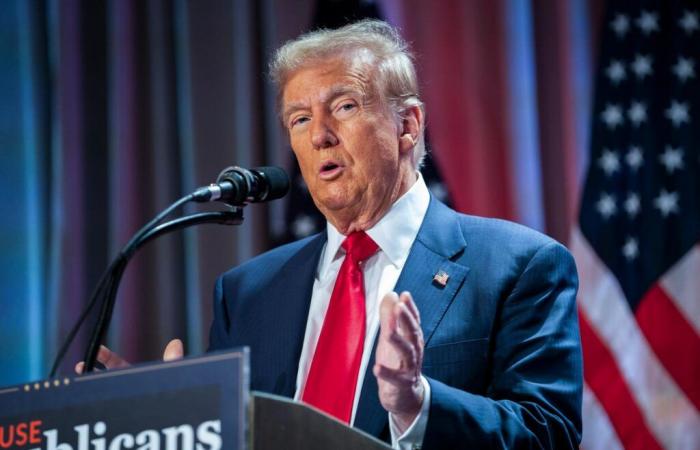DDonald Trump will only move into the White House in two months, but the great global bargain that he promised during his electoral campaign to put the interests of the United States first has already begun. In a simple post published Monday, November 25, on his Truth social network, he promised Canada and Mexico customs duties of 25% on their exports if these two countries do not put an end to drug trafficking and illegal immigration to the United States.
Read also | Article reserved for our subscribers Donald Trump's announcements on customs duties reignite trade tensions
Read later
He also threatened China with a new tax of 10%, which would be added to the 15% already in force since 2018, calling on Beijing to do everything possible to stop exports of active ingredients used in the illegal manufacture of fentanyl, a opiate causes tens of thousands of deaths in the United States each year.
Donald Trump thus shows, once again, that he is a fan of simplistic and expeditious solutions to complicated questions. In the same way that he claims to be able to reach a peace agreement between Ukraine and Russia “in twenty-four hours”he believes that Mexico and Canada have the power to “solve easily” the problems of illegal immigration and drugs.
Read also | Article reserved for our subscribers Customs duties imposed by Donald Trump: Canada risks big for its trade
Read later
Even if, at this stage, it is only a threat with still unclear modalities, the method is proven. Based on blackmail to obtain satisfaction, it was experimented by Trump when he was promoting real estate in New York. The president-elect is convinced that it can also be applied to bilateral relations between nations. But the use of customs duties as a tool of diplomacy has the appearance of a poker move, which risks causing significant disruptions on the economic level without guaranteeing the cessation of the targeted flows.
Protectionism
Donald Trump was already a fan of power struggles tinged with protectionism during his first term. The results had not been tangible. While the tariffs were supposed to reduce the US trade deficit, it increased by a quarter under his presidency. Trade with China has declined significantly, but the customs barriers put in place have been circumvented. Chinese companies have massively relocated their production to other manufacturing hubs such as Mexico, Vietnam, Taiwan and Malaysia.
Read also | Article reserved for our subscribers In Donald Trump's sights, the formidable interweaving of the Mexican economy with that of the United States
Read later
Although they are not very effective in rebalancing the trade balance, customs duties can have negative effects on the economy. They increase production costs and consumer prices. However, given the intertwining of the United States economy with those of Mexico and Canada, the inflationary effects could be spectacular on agricultural products, metals, oil and the automobile industry. While Donald Trump won his election on the theme of the fight against inflation, his policy paradoxically risks relaunching it.
The man is not close to a contradiction. Through his initiative, he weakens the USMCA, the trade agreement that he himself negotiated with Mexico and Canada, in 2020. At the time, he was tempted to give up free trade with these two country. But, at the last moment, his secretaries of agriculture and commerce convinced him that this would harm farmers and the bordering federal states. The question is whether, in two months, the president will be able to demonstrate the same pragmatism.
Read also | Article reserved for our subscribers Faced with Trump's threats, China prepared for shock despite its fragilities
Read later






